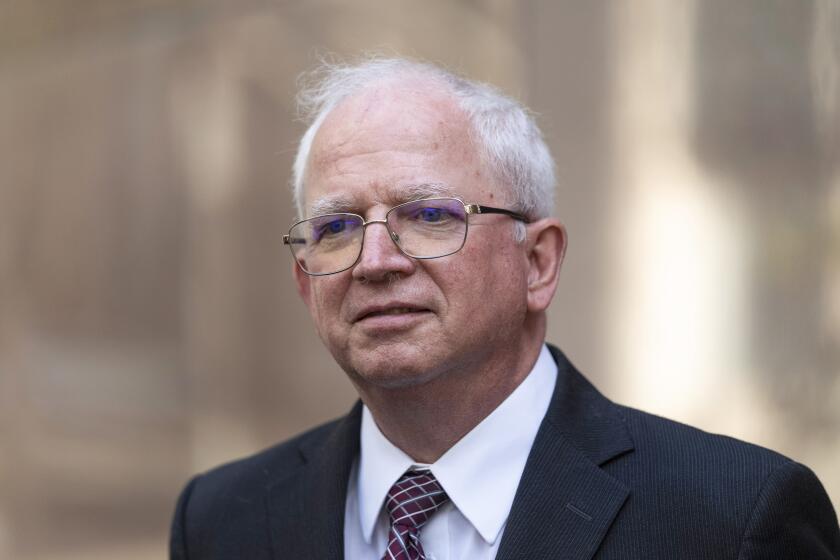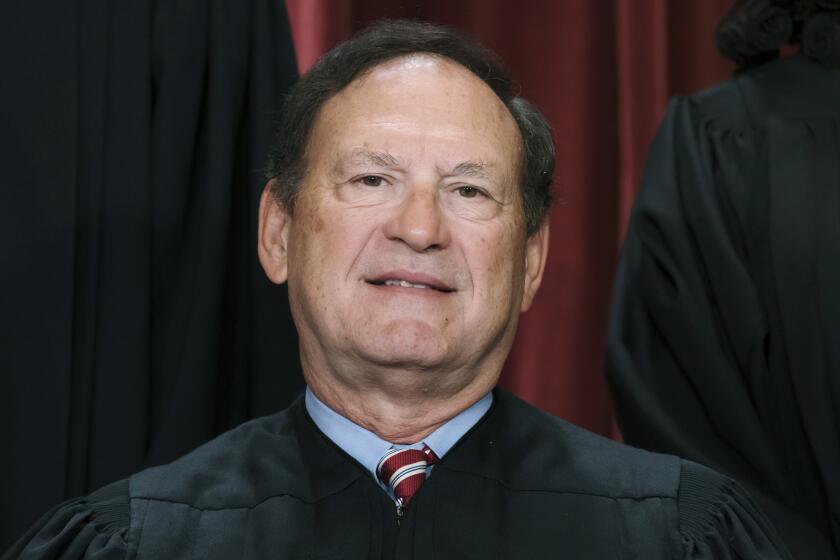Jesse Unruh: High Service, Tangled Ethics
Jesse Unruh is the Jekyll and Hyde of California politics. Over the past quarter-century, he has repeatedly erected new heights for government to scale in serving the public interest, while always remaining himself mired in controversy over the most tawdry issues of money and influence. In achievement, insight and intelligence, he is everything we could hope for in a public servant and the last thing many of us would ever want. Most maddening of all, he has combined all of these apparent contradictions in a single, wholly consistent and completely self-confident personality.
With the exception of Hiram Johnson, no one in this century has made a more enduring impact on the quality of government in California. As Speaker of the Assembly in the 1960s, Unruh built the Legislature into a model of professional achievement that every other state and Congress as well has sought to emulate. As treasurer today, he has energized a moribund office, expanding California’s leverage within the world’s money markets in a way that benefits us all through enhanced public revenues and economic stability.
And yet, in tilling the field of public service, Unruh has always harvested only cash crops. For many, he is the perfect embodiment of the wheeler-dealer, trading his favors for the kind of coinage that only enhances his power.
We expect those who traffic in campaign contributions to skulk in the shadows and deny everything when they’re cornered. By the same token, we like our political reformers to be tweedy, ethereal and absolutely selfless in their devotion to the ideals of public service. But Unruh confounds all of these stereotypes. He has little patience for faint-hearted notions that the business of government can somehow be rendered blameless by just a little more tinkering, a little more reporting here, a pinch of oversight there. His career doesn’t just point up the contradictions in our conventional views about politics; it demonstrates their consequences. Rather than dreaming of things that never were and asking “Why not?” Unruh has always looked at the eternal intertwining of money and politics as it is and wondered, “How can we make this work?”
When Unruh first came to the Legislature, the money that politicians need to run for office was controlled by a handful of lobbyists. That was bad for the public as well as the people who serve them. Unruh changed all that by channeling the flow of campaign funds through his own office.
That was less bad because it made the bagman the most visible member of the Legislature. The Speaker’s office became a buffer, insulating the Legislature from outside influence and clearing the thicket of special-interest demands so that elected officials could begin to see their way toward policies of their own devising. Most important, by shifting the power to punish as well as reward to a leader of their own choosing, it gave the legislators a way to say no to the lobbyists.
Unfortunately, Unruh’s works often require an Unruh to make them work. For example, the always imperfect integrity of the system that he built rested on the assumption that the Speaker would in fact wield the authority of his office, defend the Legislature’s new-found independence and pursue substantive policy objectives.
Under the stewardship of Leo McCarthy, however, the Speaker’s power was dissipated, always with the best of intentions. As a result, today’s politicos have been left to cut whatever deals they can, which is by far the worst situation of all.
Now, as treasurer, Unruh has found an even larger pile of cash to serve as the fulcrum for his ambition. No governor and certainly no legislator makes as many decisions as the treasurer does with so large a direct impact on the great houses of American finance. In exercising his authority with more vigor than his predecessors ever dreamed of, Unruh has become a black hole in state government, drawing more and more of the best people around the Capitol into his orbit, more influence, and, inevitably, more controversy.
As always when dealing with a man of such outsize achievement, the problem of judging Unruh’s actions inevitably becomes tangled up with questions of character and proportionality.
The political contributions that he gathers in each year, for example, no longer serve the larger objectives that preoccupied his attention as Speaker. They are simply the means to maintaining himself in office. But they’re pretty small potatoes compared to the billions that he manages each year in the public interest.
Unlike service in the Legislature, few of the decisions that the treasurer makes involve great substantive issues of public interest. In directing the flow of the state’s investments, he is called upon for the most part simply to choose among brokers of roughly equivalent competency to perform an essentially technical service. If he nicks the folks he picks for a few thousand dollars in campaign contributions out of the millions they’ll make in commissions and fees, the ethical balance shifts, to be sure, but by how much?
If Unruh can negotiate a quarter-percent reduction in interest that will save the state millions over the life of a particular bond issue, is anyone’s moral outrage really piqued if he picks up a fancy steak dinner in the process? His salary, after all, is fixed in law, currently at $42,000 a year. Forty of the 213 people working for him make more than that. If he were in the private sector handling the same volume of investment as he does as treasurer, his personal income would be 60 to 100 times greater.
None of these considerations justify a slipshod approach to ethical standards, of course. Brilliant public service does not require a marriage of high ideals and low practice. But, as Unruh has taught us, they often do hold hands.
More to Read
Get the L.A. Times Politics newsletter
Deeply reported insights into legislation, politics and policy from Sacramento, Washington and beyond. In your inbox three times per week.
You may occasionally receive promotional content from the Los Angeles Times.






